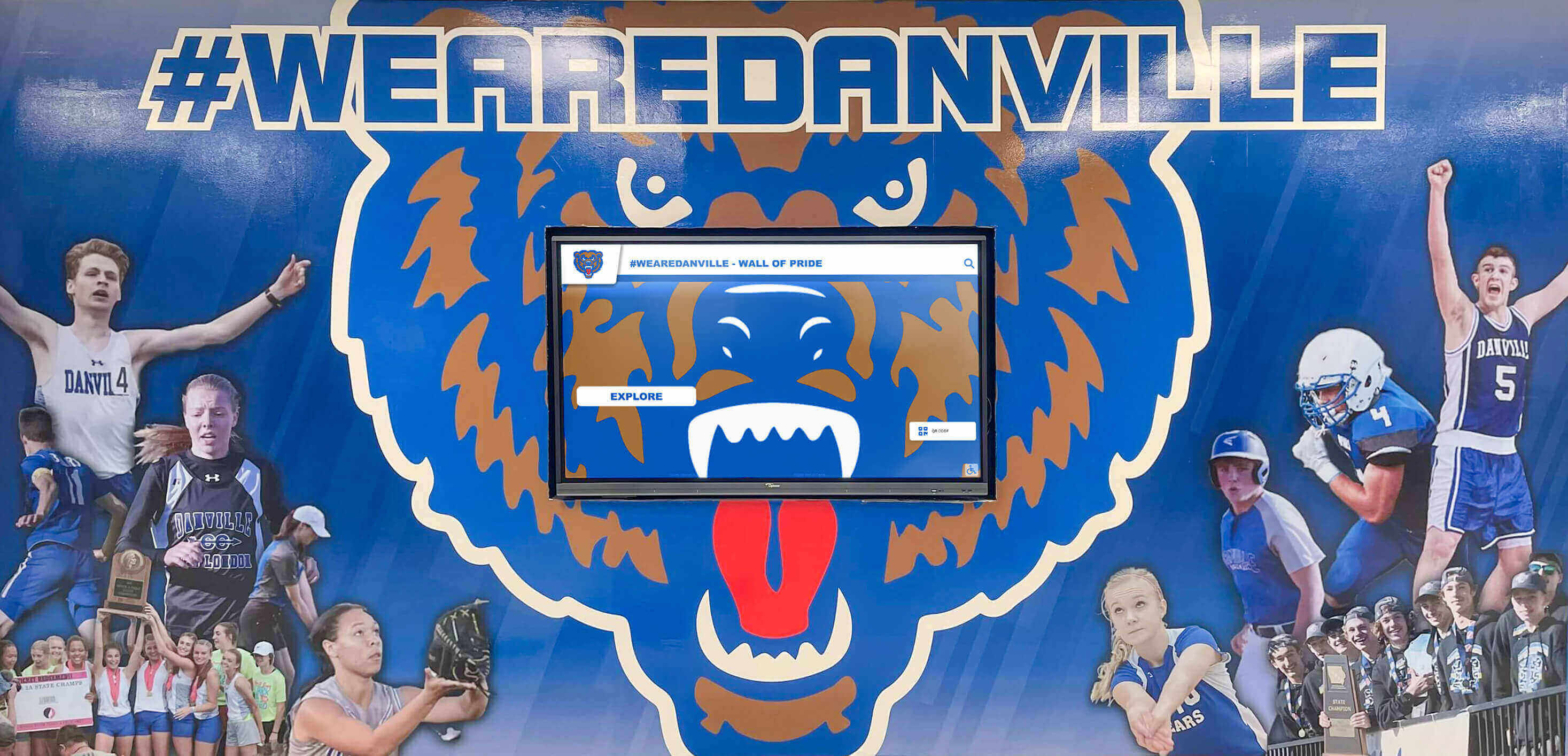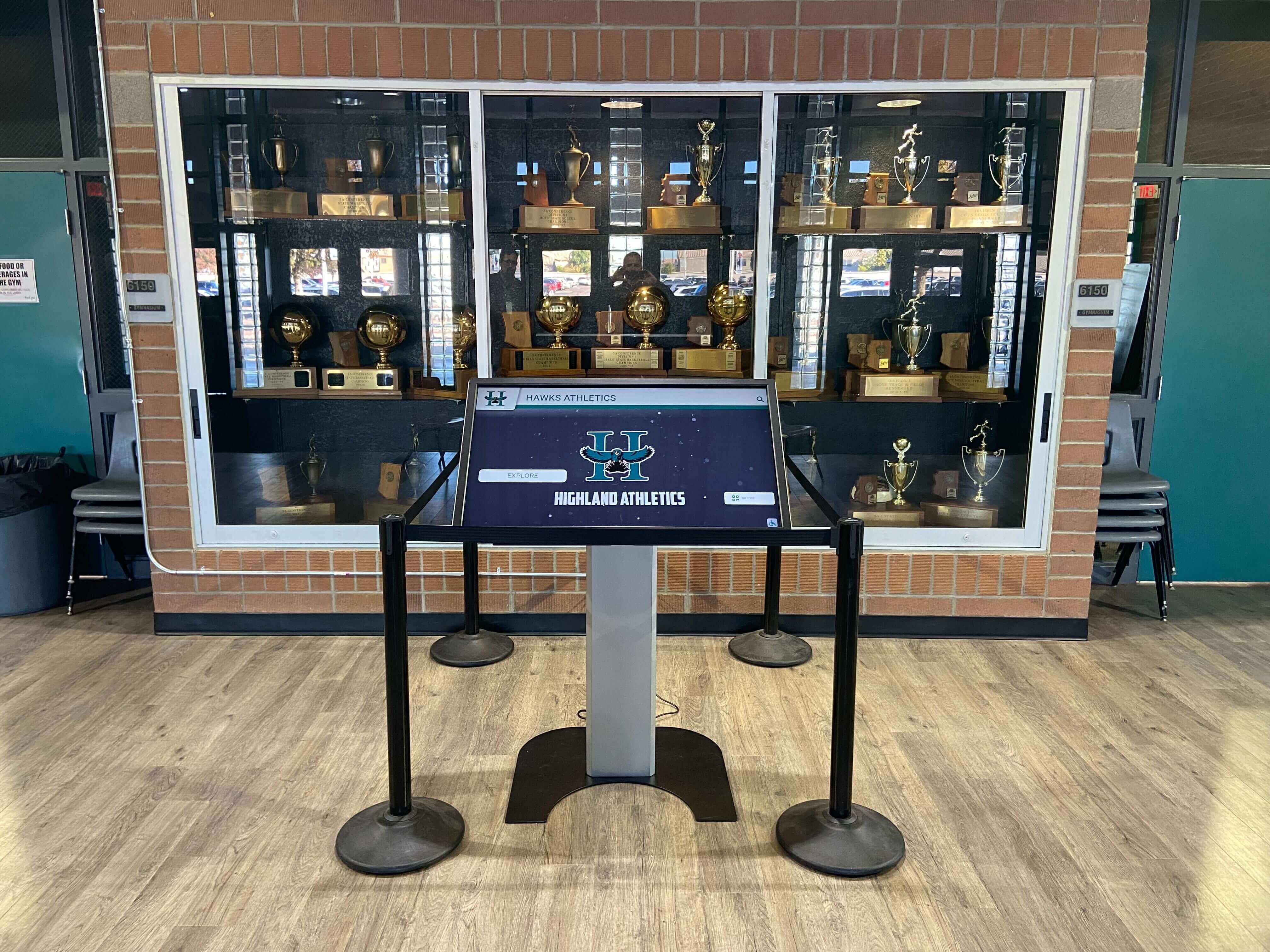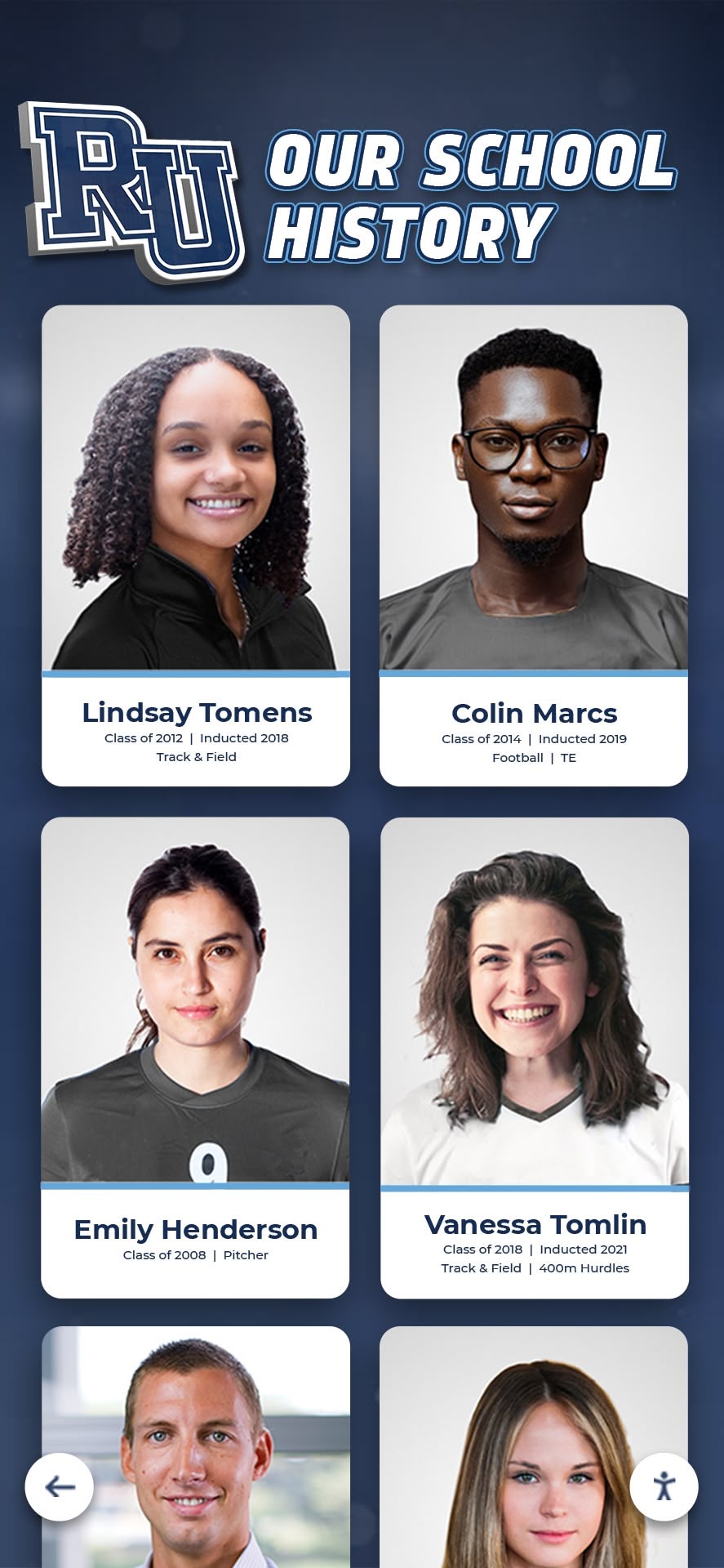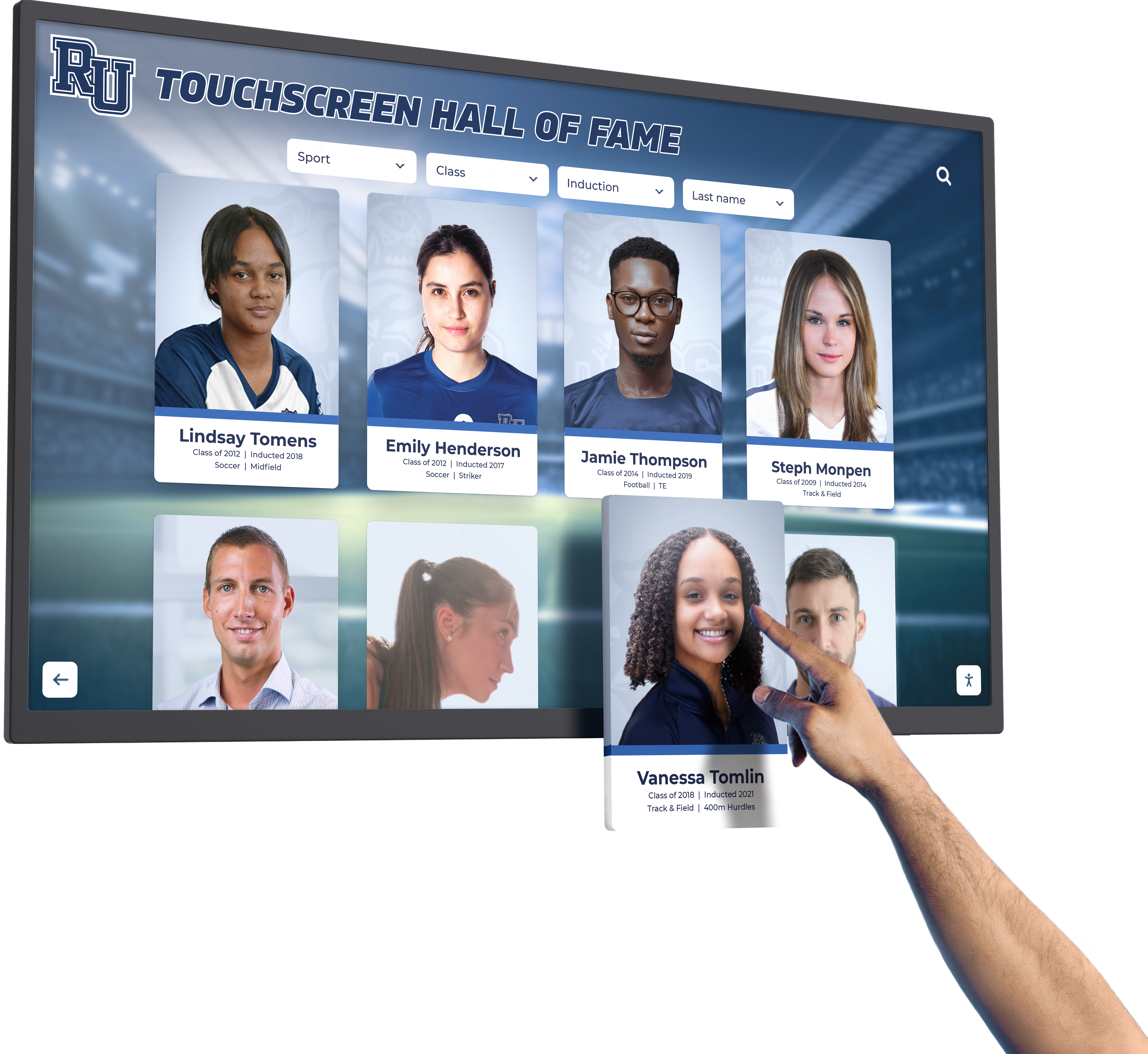Finding school sports records represents a critical challenge for athletic directors, coaches, historians, and school communities seeking to preserve institutional athletic heritage and honor past achievements. Whether you’re researching individual performance records, documenting championship seasons, preparing hall of fame nominations, or establishing baseline data for current record boards, locating accurate historical sports information requires knowing where to look and how to verify what you find.
Yet many schools struggle with fragmented athletic records scattered across filing cabinets, dusty yearbooks, newspaper clippings, old programs, and the fading memories of coaches and community members. Statistics from decades past may exist only on deteriorating paper, information about pioneering athletes disappears when knowledgeable staff retire, and championship achievements go unrecognized simply because documentation can’t be located.
This comprehensive guide explores systematic strategies for finding school sports records across multiple sources, preserving discovered information for future generations, and leveraging modern digital solutions to showcase athletic achievements in ways that inspire current student-athletes while honoring historical excellence.
Successfully finding school sports records requires understanding where different types of athletic information typically exist, developing research methodologies that cross-reference multiple sources, and implementing systems ensuring newly discovered records become permanently accessible rather than lost again in administrative transitions.

Modern digital displays preserve and showcase historical athletic records alongside current achievements
Understanding What School Sports Records Encompass
Before beginning your search, clarify exactly what athletic records and historical information you’re seeking, as different record types exist in different locations.
Types of School Sports Records
Athletic records span multiple categories requiring different research approaches:
Individual Performance Records
- Single-game performance records by sport and position
- Season statistical leaders across all athletic programs
- Career achievement records for multi-year athletes
- School records in measurable events (track times, swimming splits, distances)
- Tournament and playoff performance records
- All-conference, all-state, and all-American selections
Team Achievement Records
- Season win-loss records and winning percentages by sport
- Conference championship seasons and tournament results
- State playoff appearances and championship victories
- Longest winning streaks and notable season achievements
- Head-to-head records against traditional rivals
- Historical team rankings and recognition
Coaching Records
- Career wins and losses by head coach
- Championship seasons and tournament appearances
- Coach tenure periods and overall program records
- Milestone victories and significant achievements
- Coaching awards and recognition received
Program History Information
- Sport program establishment dates and founders
- Facility construction and renovation history
- Significant program milestones and transitions
- Conference and league affiliation history
- Notable alumni achievements at collegiate and professional levels
Understanding exactly what records you’re seeking focuses research efforts and helps identify the most promising sources.
Why Finding Sports Records Matters
Locating historical athletic records serves multiple important purposes:
Current Recognition and Motivation
- Establishes baselines for digital record boards showcasing top performances
- Provides context showing current athletes how they compare historically
- Creates motivation as athletes pursue school records
- Enables fair recognition of all-time achievements across program history
Historical Documentation
- Preserves institutional athletic heritage for future generations
- Honors pioneering athletes and coaches who built program foundations
- Documents achievement trends and program evolution over decades
- Provides context for anniversary celebrations and milestone recognitions
Hall of Fame and Awards
- Supplies necessary documentation for athletic hall of fame nominations
- Enables comparison of candidates across different eras
- Provides statistical context for recognition decisions
- Creates comprehensive achievement profiles for inductees
Community Connection
- Reconnects alumni with their athletic achievements
- Builds institutional pride through documented excellence
- Creates conversation points between generations
- Demonstrates program quality to prospective student-athletes
Thorough record-finding efforts ensure your school’s athletic legacy receives appropriate recognition rather than fading into obscurity.

Comprehensive digital displays showcase both historical records and current athletic achievements
Primary Sources for Finding School Sports Records
Systematic research across multiple primary sources provides the most complete athletic record information.
School-Based Athletic Records
Your institution likely holds more athletic records than initially apparent—they’re just scattered across different locations:
Athletic Department Files The athletic director’s office typically houses:
- Current and recent season record books
- Media guides from past seasons
- Award nomination files with supporting documentation
- Conference and state association communications
- Coaching files containing season summaries
- Athletic department annual reports
Start here by systematically reviewing filing cabinets, storage rooms, and any organized archives the athletic department maintains.
School Archives and Records Many schools maintain official archives containing:
- Historical yearbooks with team photos and season summaries
- Student newspapers covering athletic events
- School board meeting minutes mentioning athletic achievements
- Official school history documents
- Digitized historical materials
- Special collections related to athletics
Contact your school librarian or designated archivist to access these materials, as they may be stored separately from athletic department records.
Coaching Office Files Current and former coaches often maintain personal files including:
- Season-by-season statistics and record books
- Game programs and scorebooks
- Team rosters with player statistics
- Newspaper clippings about their teams
- Championship documentation and awards
- Historical context from predecessor coaches
If coaches have retired or moved on, inquire whether they donated materials back to the school or if their successors inherited files.
Yearbooks: Comprehensive Athletic Documentation
School yearbooks represent one of the most valuable and underutilized sources for finding sports records.
What Yearbooks Contain
- Team photographs with player names and positions
- Season records and final standings
- Individual award recipients and honors
- Championship documentation and tournament results
- Coach names and tenure information
- Brief season narratives and highlight descriptions
Accessing Historical Yearbooks
- School libraries typically maintain complete yearbook collections
- Many schools have digitized yearbook archives accessible online
- Local public libraries often collect yearbooks from area schools
- Alumni associations sometimes maintain yearbook archives
- Online services like Classmates.com and E-Yearbook.com host digitized copies
Extracting Information from Yearbooks Create systematic processes for yearbook research:
- Photograph or scan relevant pages for later reference
- Cross-reference information across multiple years to verify accuracy
- Note inconsistencies that require additional verification
- Document source information (year, page number) for citations
- Look beyond sports pages—academic sections sometimes mention athletic achievements
Comprehensive yearbook research often reveals forgotten achievements and fills gaps in official athletic records.
Historical Newspaper Archives
Local newspapers provide contemporaneous reporting on athletic achievements often lost from school records:
What Newspapers Offer
- Game-by-game coverage with scores and statistics
- Season previews and reviews with context
- Individual achievement recognition
- Championship coverage and tournament results
- Coach interviews and historical perspective
- Community reaction to notable achievements

Trophy displays and murals document athletic achievements when detailed records may be incomplete
Accessing Historical Newspapers
- Local libraries typically maintain microfilm or digital newspaper archives
- Newspapers.com and similar services offer searchable historical newspapers
- State historical societies often digitize regional newspapers
- Many newspapers maintain their own digital archives
- Google News Archive contains some historical newspaper collections
Research Strategies
- Search for school name plus sport during relevant season dates
- Look for end-of-season summary articles with comprehensive statistics
- Cross-reference multiple publications for the most complete information
- Note reporter bylines—experienced sports journalists often maintained detailed notes
- Save digital copies or photographs of relevant articles for permanent records
Newspaper research proves particularly valuable for pre-1970s records when school documentation becomes scarcer.
National and State Athletic Record Resources
Beyond local sources, state and national organizations maintain comprehensive record databases.
National Federation of State High School Associations (NFHS)
The NFHS maintains the National High School Sports Record Book, according to NFHS, which attempts to catalog outstanding performances across 16 sports since its first publication in 1979.
What NFHS Records Include
- National high school records by sport and event
- Historical perspective on record progression
- Verification requirements and submission processes
- State-by-state record comparisons
Accessing NFHS Records Visit www.nfhs.org to explore:
- Online record book searchable by sport
- Submission forms for potential national records
- Historical record documentation
- Contact information for specific sports record keepers
Understanding national records provides context for evaluating your school’s achievements against broader benchmarks.
State Athletic Associations
Every state maintains high school athletic associations that often compile records:
State Association Resources
- State championship records and historical results
- All-state team selections by year
- Conference standings and tournament brackets
- Coaching records within the state
- Special achievement recognition archives
Finding Your State Association
- Search “[Your State] High School Athletic Association”
- Many states publish online record books updated regularly
- Contact association offices directly for historical information requests
- State associations sometimes maintain photo and document archives
- Championship programs from past decades often contain historical data
For example, the North Carolina High School Athletic Association maintains comprehensive online record books accessible to researchers.
MaxPreps and Online Statistics Platforms
Modern statistics platforms maintain extensive databases, particularly for recent decades:
MaxPreps Features According to MaxPreps, the platform offers school history and team record pages that compile historical performance data across multiple sports.
What These Platforms Offer
- Season-by-season team records and results
- Individual statistical leaders when available
- Historical rosters and player information
- Comparison tools across different seasons
- Integration with current record tracking
Limitations to Consider
- Coverage typically begins in the 1990s or 2000s
- Historical data completeness varies significantly by school
- Smaller schools and less prominent sports may have gaps
- Information accuracy depends on who submitted original data
Use these platforms as starting points, but verify information against primary sources when possible.

Integrated recognition systems combine traditional murals with digital displays for comprehensive athletic history presentation
Community and Personal Sources for Athletic Records
Beyond official sources, community knowledge and personal collections often contain invaluable information.
Alumni and Former Athletes
Former student-athletes represent living records of athletic history:
What Alumni Can Provide
- First-hand accounts of their seasons and achievements
- Context about coaching, facilities, and program evolution
- Personal records, statistics, and memorabilia
- Connections to teammates and competitors
- Verification or correction of documented information
Connecting with Former Athletes
- Leverage social media groups for specific graduation classes or sports
- Work through alumni associations to identify former athletes
- Attend reunion events and homecoming activities
- Create online forms where alumni can submit their athletic information
- Recognize that alumni engagement efforts benefit from athletic history projects
When reaching out to alumni, be specific about what information you’re seeking and how you’ll use it to honor athletic legacy.
Retired Coaches and Athletic Staff
Former coaches often maintained detailed records and possess institutional memory:
Information Coaches Preserve
- Season-by-season statistics and record books
- Historical context about program development
- Connections between different eras and coaching staffs
- Anecdotes and details not captured in official records
- Personal collections of programs, clippings, and photographs
Engaging Retired Staff
- Conduct formal oral history interviews documenting their recollections
- Request donation of personal athletic archives to school collections
- Invite participation in record verification and fact-checking
- Honor their contributions through recognition in historical displays
- Create oral history preservation projects capturing coaching perspectives
Retired coaches often enthusiastically support efforts to preserve the programs they built.
Community Historical Societies
Local historical organizations frequently collect materials related to schools:
What Historical Societies May Hold
- School-related documents donated by community members
- Photograph collections including athletic teams
- Newspaper clipping files organized by topic
- Oral histories mentioning schools and athletics
- Programs and memorabilia from community events
Contact your county or city historical society to inquire about school athletic materials in their collections.
Personal Collections and Attics
Families of former athletes and coaches often preserve materials that never made it to official archives:
Common Personal Holdings
- Game programs and statistics sheets
- Scrapbooks compiled by parents or athletes
- Photographs from seasons and individual games
- Awards, certificates, and recognition letters
- Team rosters and contact information
Consider organizing collection drives where community members can temporarily loan materials for digitization or donate items permanently to school archives.

Modern touchscreen kiosks can be integrated into existing trophy cases to provide searchable access to comprehensive athletic records
Researching Specific Types of Athletic Records
Different record types require specialized research approaches.
Individual Performance Records
Finding individual athletic achievement records:
Track and Field / Cross Country
- Check state association meet results by year
- Review newspaper coverage of invitational meets
- Examine track and field specific websites like Athletic.net
- Access track and field record boards from your school
- Contact meet directors who may maintain historical results
Swimming and Diving
- State championship meet programs contain historical times
- Swimming-specific databases like USA Swimming maintain age group records
- Swimming record board information from pool facilities
- Conference championship results over multiple years
Team Sport Statistics
- Game-by-game scorebooks sometimes preserved in coaching files
- Season summary statistics in yearbooks and media guides
- Conference-maintained statistical leaders by sport
- Weekly top performers recognition from newspapers
- State association tournament statistics
Team Season Records
Documenting team achievements requires comprehensive research:
Win-Loss Records
- Compile game-by-game results from newspapers
- Cross-reference yearbook season summaries
- Check state association historical standings
- Verify information against opponent schools’ records when possible
- Note that records sometimes include or exclude playoff games differently
Championship Seasons
- State association maintains official championship records
- Championship game programs document winners
- Local newspapers provide extensive coverage of title seasons
- Trophy engravings in school display cases confirm championships
- Conference offices maintain conference championship records
Rivalry Game Records
- Compile head-to-head results between traditional rivals
- Local newspapers often publish historical rivalry records
- Trophy games (where physical trophies exchange schools) have documentation
- Combined anniversary publications sometimes document rivalry history
Coaching Records
Documenting coaching achievements:
Career Records
- Compile season-by-season records from multiple sources
- Note that records may be split across multiple schools
- State associations sometimes maintain coaching milestone lists
- Hall of fame nominations require verified career statistics
- Consider both overall and conference/league records separately
Milestone Achievements
- Newspapers covered major milestone victories (100, 200, 500 wins)
- State associations may recognize milestone achievements
- Coaching associations sometimes maintain records
- Verify exact game where milestone occurred when possible
Organizing and Verifying Found Records
Once you’ve located information, systematic organization and verification ensures accuracy.
Creating Comprehensive Record Books
Compile discovered information into organized, accessible formats:
Sport-by-Sport Record Books Develop comprehensive documents for each sport including:
- School records by event or statistical category
- Season-by-season team records
- Career achievement leaders
- Championship seasons and playoff results
- All-conference and all-state selections
- Coaching records and milestone achievements
Documentation Standards For each record, document:
- Athlete name and graduating class
- Specific achievement or statistic
- Date accomplished (as specific as possible)
- Opponent or event where record was set
- Source of information (with page numbers or URLs)
- Previous record and record holder if known
This documentation enables future verification and updates when records fall.
Cross-Referencing and Verification
Verify information accuracy through multiple independent sources:
Verification Strategies
- Never rely on a single source for important records
- Prioritize contemporaneous sources (yearbooks, newspapers from the year it occurred)
- Note when sources disagree and indicate uncertainty
- Contact individuals involved when possible for confirmation
- Distinguish between verified facts and probable information
Handling Conflicting Information When sources disagree:
- Weight contemporaneous sources more heavily than later recollections
- Look for third sources to break ties
- Note discrepancies in your documentation
- Update records when additional evidence emerges
- Be transparent about uncertainty rather than presenting uncertain information as fact
Common Sources of Error
- Yearbooks sometimes contain typos or incomplete information
- Memory becomes less reliable over decades
- Statistics may have been tracked differently in earlier eras
- Names may be spelled differently across sources
- Different sources may use different criteria for records (regular season vs. including playoffs)
Systematic verification ensures the records you publicize can withstand scrutiny.
Digital Preservation of Athletic Records
Once found, ensure records don’t get lost again:
Digitization Best Practices
- Scan or photograph all primary source materials
- Create organized digital folder structures by sport and year
- Use consistent file naming conventions
- Store backups in multiple locations including cloud services
- Create searchable databases for statistics and records
Learn more about digitizing school records and best practices for long-term preservation.

Digital systems preserve athlete profiles and statistical records across decades of athletic achievement
Creating Accessible Archives
- Develop online searchable databases of athletic records
- Create PDF record books accessible via school website
- Implement content management systems for ongoing updates
- Ensure multiple staff members can access and update records
- Document procedures for maintaining and updating records
Proper digital preservation ensures future athletic directors won’t need to repeat your research work.
Showcasing Found School Sports Records
After investing significant effort finding and verifying athletic records, showcase them effectively to honor achievements and inspire current athletes.
Traditional Record Display Methods
Physical displays provide permanent, visible recognition:
Record Board Options
- Traditional vinyl or printed record boards by sport
- Trophy case displays with engraved records
- Hallway murals incorporating historical achievements
- Gymnasium and facility wall displays
- Lobby installations celebrating athletic excellence
Limitations of Physical Displays
- Limited space forces difficult choices about what to include
- Updates require physical materials and installation
- Records from less prominent sports may be excluded
- Historical context difficult to provide with limited space
- Older achievements often removed to make room for recent records
Digital Record Board Solutions
Digital recognition systems overcome traditional limitations while preserving complete athletic history:
Digital Record Board Advantages Solutions like Rocket Alumni Solutions offer:
- Unlimited Capacity: Recognize all record holders across every sport without space constraints
- Complete Historical Archives: Preserve and display achievements from all eras, not just recent records
- Easy Updates: Cloud-based management allows instant updates when records fall
- Rich Multimedia: Include photos, videos, and detailed achievement stories
- Interactive Exploration: Touchscreen interfaces enable athletes to search records, explore history, and compare achievements
- Equal Sport Recognition: Showcase achievements across all programs without prioritizing certain sports
Learn more about comprehensive digital record boards for high schools.
Implementation Benefits Schools using digital recognition report:
- 85-90% reduction in administrative time for record maintenance
- Increased athlete engagement with historical achievements
- Enhanced recruitment appeal showing program tradition
- Stronger alumni connections through accessible athletic history
- Cost savings compared to repeatedly updating physical boards
Athletic-Specific Digital Solutions Sport-specific digital recognition includes:
- Digital swim record boards with comprehensive event records
- Basketball alumni displays celebrating program history
- Multi-sport recognition systems accommodating all athletic programs

Interactive touchscreen displays enable intuitive exploration of comprehensive athletic records and achievement histories
Online Athletic Archives
Extend record access beyond your physical campus:
Web-Based Record Books
- Create searchable online databases of all school records
- Publish annual record books as downloadable PDFs
- Develop sport-specific pages with historical records and context
- Enable alumni to search for their own achievements
- Integrate records with broader digital school history timelines
Social Media and Communication
- Share historical records and “on this day” achievements
- Celebrate when current athletes break long-standing records
- Recognize record holder anniversaries
- Feature record holder profiles and interviews
- Create engagement around athletic history
Alumni Engagement Found athletic records create powerful alumni connection opportunities:
- Contact record holders informing them of recognition
- Invite former athletes to events celebrating their achievements
- Feature alumni achievement stories in communications
- Connect current athletes breaking records with previous record holders
- Develop alumni recognition programs incorporating athletic history
Ongoing Record Maintenance Systems
After initial research, implement systems ensuring records remain current and accessible.
Establishing Record-Keeping Processes
Create sustainable systems for ongoing record maintenance:
Season-End Documentation
- Designate responsibility for compiling season records
- Create templates for consistent documentation across sports
- Establish verification processes before publishing records
- Archive season materials systematically
- Update master record books promptly
Record Book Distribution
- Provide coaches with current record books before each season
- Post records prominently in practice facilities
- Make records accessible via school website
- Include records in media guides and program publications
- Ensure athletes know records they’re pursuing
Update Protocols
- Verify potential records immediately when they occur
- Announce record-breaking achievements promptly
- Update all displays and publications systematically
- Archive documentation about when and how records were broken
- Recognize both current and previous record holders
Technology Solutions for Record Management
Modern tools simplify ongoing record maintenance:
Database Systems
- Implement sports management software tracking statistics
- Use spreadsheet databases for smaller programs
- Develop custom databases if resources allow
- Ensure databases are accessible to appropriate staff
- Maintain regular backups of all data
Cloud-Based Management Digital recognition systems offer:
- Remote access enabling updates from anywhere
- Automatic archiving of previous records
- Scheduled publishing capabilities
- Role-based permissions for multiple contributors
- Audit trails showing who made changes and when
Integration with Statistics Platforms
- Connect with MaxPreps, Athletic.net, or similar services
- Automate data collection where possible
- Establish workflows for transferring statistics to permanent records
- Verify automated data before finalizing records
Proper systems ensure the extensive work finding historical records doesn’t need repeating while new achievements receive immediate recognition.

Comprehensive recognition displays combine trophies with detailed records documenting championship achievements
Special Considerations for Different Sports
Sport-specific research strategies address unique characteristics of different athletic programs.
Individual Sport Records (Track, Swimming, Wrestling)
These sports generate objective, measurable records:
Research Priorities
- Meet results programs contain comprehensive performance data
- State qualifying standards documents track historical marks
- Conference and regional meet results show progression
- National databases sometimes track state-level performances
- Timing system archives may preserve electronic records
Display Considerations
- Large number of events creates extensive record categories
- Records often broken frequently requiring regular updates
- Historical context (track surfaces, pool configurations, rules changes) affects comparisons
- Digital systems particularly valuable for comprehensive event coverage
Team Sport Records (Football, Basketball, Soccer, Volleyball)
Team sports emphasize wins, championships, and team statistics:
Research Focus
- Season records and championship appearances
- Individual statistical leaders when documented
- Playoff success and tournament achievements
- Head-to-head records against conference opponents
- Coaching milestone victories
Recognition Approaches
- Team photos and championship documentation
- Season highlight videos when available
- Career statistical leaders in multiple categories
- Connection to college recruitment success
Emerging and Non-Traditional Sports
Newer programs require different research approaches:
Documentation Challenges
- Programs may lack historical record-keeping traditions
- State association records may not extend as far back
- Less newspaper coverage in early program years
- Fewer alumni to provide historical information
Building Records for Newer Programs
- Start comprehensive record-keeping immediately
- Document program establishment and early seasons thoroughly
- Create photo and video archives from the beginning
- Recognize early participants and coaches as program founders
- Establish traditions for recognizing athletic achievement equitably across all sports
Conclusion: Preserving Athletic Legacy for Future Generations
Finding school sports records represents far more than compiling statistics—it preserves your institution’s athletic heritage, honors the achievements of past student-athletes and coaches, and creates connections between generations of school community members. When schools systematically research athletic history across multiple sources, verify information for accuracy, and implement modern systems for preservation and showcase, they ensure decades of athletic excellence receive the recognition it deserves.
The strategies explored in this guide provide comprehensive frameworks for locating records in school archives, yearbooks, newspapers, state associations, and community sources while leveraging alumni and coaching knowledge to fill gaps official sources can’t address. From traditional newspaper research to modern digital platforms like MaxPreps, these varied sources each contribute pieces to complete historical pictures.
Showcase Your Athletic Records with Modern Recognition
Discover how digital record board solutions can help you preserve complete athletic history while providing easy updates and engaging interactive experiences for your school community.
Explore Digital Record SolutionsOnce found, athletic records require permanent preservation through digitization, organized databases, and accessible archives preventing future loss. Digital recognition displays transform static record books into engaging interactive experiences where students explore achievements, coaches access historical benchmarks, and alumni reconnect with their contributions to program tradition.
Remember that finding school sports records is an ongoing process, not a one-time project. As you research historical achievements, implement systems ensuring current accomplishments receive immediate documentation and recognition. Every season creates new stories, breaks existing records, and adds to institutional athletic legacy—establish processes capturing this information systematically rather than leaving future researchers to rediscover what you’ve worked so hard to find.
Start where you are with accessible sources like yearbooks and newspaper archives, then systematically expand research as time and resources allow. Every record you document honors an athlete who represented your school, every championship you verify recognizes coaches and teams who built your athletic tradition, and every piece of preserved history strengthens connections within your school community.
Your school’s athletic achievements deserve permanent recognition. With systematic research, proper verification, modern preservation systems, and engaging display solutions, you can ensure generations of athletic excellence remain visible, accessible, and celebrated for decades to come.
Ready to begin? Explore comprehensive approaches to showcasing athletic history or learn more about transitioning from traditional trophy cases to digital displays that accommodate unlimited athletic records.




































